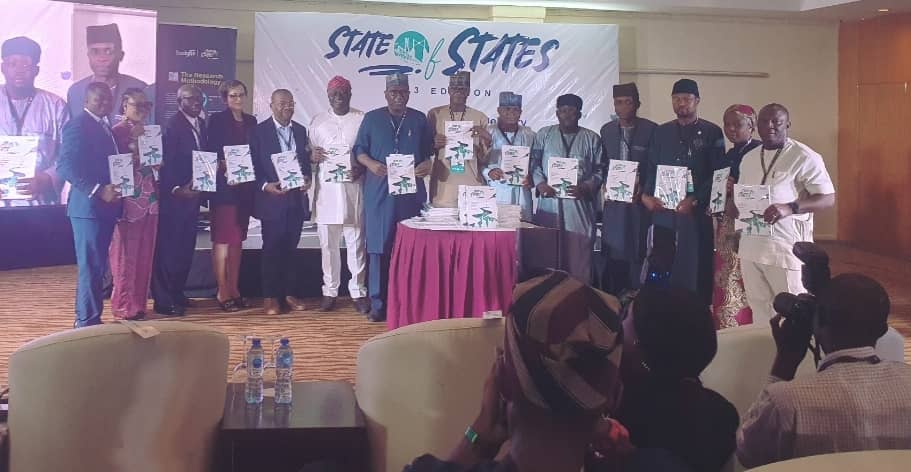BudgIT, a Nigerian civic organisation has revealed that states’ reliance on transfers from the Federal Government increased from 58.4 per cent in 2021 to 61.45 per cent in 2022.
The Head of Research and Policy Advisory, BudgIT, Mr Iniobong Usen, while giving the state of state report launch with the theme” Subnational Healthcare Delivery for Improved Economic Development”in Abuja on Tuesday said that at least 70 per cent of the total revenue of 16 states comprised federal transfers, while 32 states depended on transfers from the federal government for at least 50 per cent of their revenue.
He said that the cumulative revenue of the 36 states grew by 28.95 per cent from N5.12tn in 2021 to N6.6tn in 2022.
He said the IGR of the 36 states appreciated by 12.98 per cent from N1.61tn in 2021 to N1.82tn in 2022, denoting a strengthened domestic revenue mobilization capability.
According to him, the IGR to GDP ratio remained very low at 1.01 per cent. The increase in IGR did not reflect across the board as 17 states experienced a decline in their IGR from the previous year while 19 states recorded positive growth,” he explained.
Speaking on the under-five mortality rate, he said that the southwest of the country recorded the lowest figures at 48 deaths per 1,000 live births while the northwest has the worst regional record with 158 deaths per 1,000 live births.
According to him, Across the country, Lagos has the lowest numbers while Sokoto had the worst.
“One in every 10 children in Nigeria does not make it to their 5th birthday, while one in every seven children born in the Northwest does not make it to their 5th birthday,”.
He said to reduce their over-reliance on federal transfers, States need to broaden and diversify their tax base, which currently is predominantly PAYE-dependent. In light of the huge infrastructure deficit, states need to prioritise capital expenditure over recurrent, especially on areas that improve the ease of doing business, namely road, power, transport, digital and security infrastructure.
“The multiplicity of taxes, which puts inflationary pressures on the price of commodities, more importantly food, needs to be urgently addressed.
“Just as the state governments need to improve their capacity to accurately and consistently project their revenues and expenditures to improve service delivery outcomes, they need to establish robust consequence management regimes to deter corruption and ensure value for money.”
Also, the Country Director, Mr Gabriel Okeowo, said that the 2023 State of States edition spotlights how subnationals prioritise investments in human capital development and the sustainability of the borrowings of the States.
Okeowo said that the state states report was a comparative assessment of the fiscal performance and position of the 36 states of the federation.




